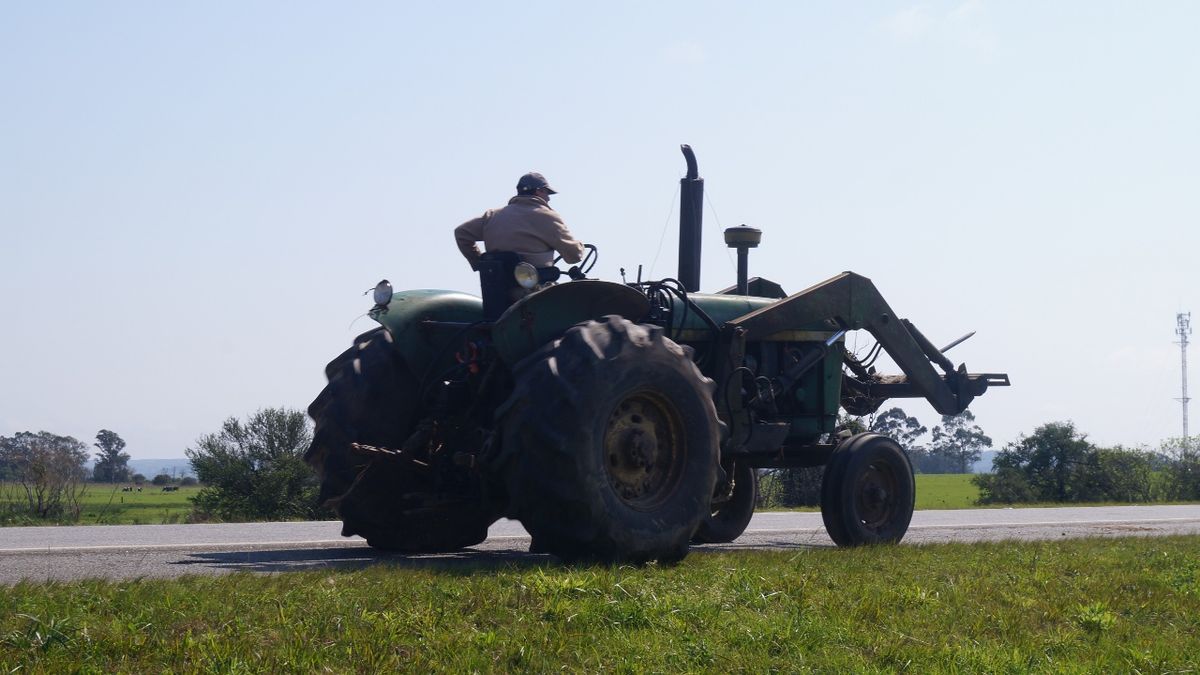He agro in Uruguay Various reasons for displeasure or complaints have accumulated with the present for businesses and exports, factors that directly harm the activity. In an electoral year and the last of the current government administration, what are the reasons for unrest that are key in shaping the relationship with one of the most important sectors of the national economy?
After a drought historic that generated significant damage to agriculture, 2024 already accumulates several new reasons – although, in reality, nothing new – that generate problems with the country’s main export sector. Some are directly related to the actions of the government and others escape the possibilities of intervention by the authorities; and they even refuse to take action in this regard.
International insertion and a pending management
Although some interesting agreements have been reached for Uruguayan products abroad – such as, for example, the recent authorization to export bone-in meat to Israel-, The truth is that the government has a significant debt in terms of important international agreements.
While the wait continues for approval of the entry of Uruguay to the Trans-Pacific Partnership (CPTPP)without major news since China and at the same time that the Executive Branch insists, from different positions, for greater flexibility of the regional bloc; he Mercosur – European Union (EU) agreement leaves the feeling of failure fresher.
Although the government has no direct responsibility—in fact, it was one of the countries that most insisted on its signature from the south—it remains a discomfort in the context of few achievements in this regard. Especially for agriculture, to which important business avenues were opening up in Europe and interesting tariff opportunities.
In this sense, the president of the Union of Exporters of Uruguay (UEU), Facundo Márquezdiscontent resurfaced before the visit of the French president Emmanuel Macron to his Brazilian counterpart Luiz Inácio Lula da Silva; the two leaders who put the most obstacles from their respective blocs to the culmination of 25 years of negotiation.
“They block the Mercosur – EU agreement, first one and then the other. And a few days later, they are best friends. It’s not easy for Uruguay, that urgently needs to make agreements, to see this with the whip against the glass,” Márquez criticized through social networks, based on an exchange on X —formerly Twitter— between both presidents.
The exchange rate delay and the loss of competitiveness
He exchange delay It is a concern of agro from 2022, when the dollar It lost 10.35% of its “end-to-end” value, and continued during 2023 with the additional decline of 2.62%. Now, so far this year, it is once again a key agenda item for the sector due to the consequent loss of competitiveness, which has already deepened for 25 consecutive months in interannual terms.
In that sense, and given the reality that the US currency fell four of the last five months —March closed with a price of 37,552 pesos and a drop of 3.83%—, the discomfort of producers and exporters grows in the opposite direction. To the exchange rate. In this regard, the Rural Federation (FR) claimed one dollar at 58 pesos, more than 20 pesos above the current value.
“The consequences are repeated given that the disease is the same, a sector with indebtedness growing”, they questioned from agriculture, warning about “the eternal return of exchange delay.”
Márquez from the UEU observed something similar when he considered the delay in the exchange rate “brutal,” and called for thinking “not only in the short term, but also in the medium and long term.” The president of the union also requested that the exchange delay be a topic of discussion in the campaign ahead of this year’s elections: “All pre-candidates should make clear not only what, but how,” in relation to economic plans and, particularly, the approach to competitiveness.
For the moment, the current economic authorities, especially the president of the Central Bank of Uruguay (BCU), Diego Labat, have made it clear that intervention on the exchange rate from monetary policy is not a possibility; while, since Broad Front, leaders like the senator and pre-candidate Mario Bergara They urged the need for firm action by the government to avoid continuing to harm the country’s main productive sector.
A commercial debt far from being settled
Another problem for agro-export sector, particularly, it is the commercial debt that Argentine importers maintain towards their Uruguayan counterpart. Currently, the amount owed to local exporters amounts to 200 million dollars, according to estimates by rural unions.
However, and despite the fact that the problem dates back many months, it does not seem to be far from being solved: the tool proposed by the government of Argentina to pay off the debts, Bonus for the Reconstruction of a Free Argentina (Bopreal)are not having the expected acceptance, and Series 3 has only been awarded a third of the target amount of 3,000 million dollars.
Therefore, this point remains of great uncertainty for the agro local. From the government, meanwhile, despite not being able to actively intervene when it comes to agreements and negotiations between private parties, they remain in dialogue with the producers and with the Argentine authorities.
Source: Ambito




